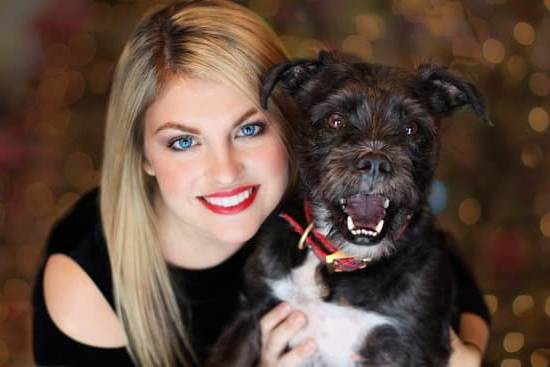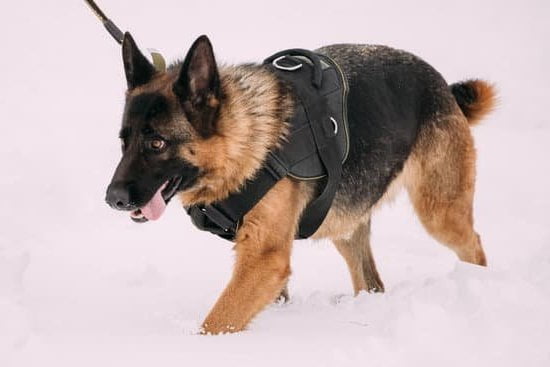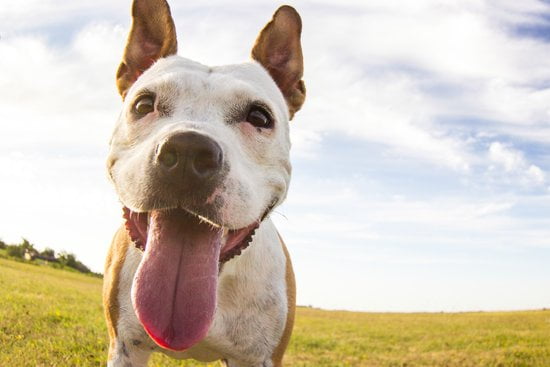House training just one dog can be a challenge, but when you have multiple dogs to train at the same time, the task can seem overwhelming. In this article, we will explore how to house train multiple dogs at once and provide valuable tips and techniques for successfully achieving this goal.
House training multiple dogs simultaneously has its own set of benefits, from saving time and effort to promoting a sense of unity among your furry companions. With the right approach and strategies in place, it is possible to effectively house train several dogs at once while minimizing the stress and frustration often associated with the process.
Understanding the challenges that come with house training multiple dogs at once is crucial for success. From establishing a consistent training schedule to managing individual behavioral issues, there are several factors to consider when taking on this task. By delving into these challenges, we can better prepare ourselves for effectively addressing them throughout the training process.
Understanding the Challenges of House Training Multiple Dogs at Once
House training multiple dogs at once can be a challenging task, but it also comes with its own set of unique benefits. The key to successfully house training multiple dogs simultaneously lies in understanding the challenges and implementing effective strategies to overcome them.
Managing Different Personalities and Behaviors
One of the main challenges of house training multiple dogs at once is managing their individual personalities and behaviors. Each dog is unique and may have different learning styles, energy levels, and behavioral issues. It’s important to tailor your training approach to accommodate each dog’s specific needs while also maintaining a consistent overall training program.
Establishing Clear Communication
When house training multiple dogs at once, clear communication is essential. It’s important to use consistent commands and signals for all the dogs, so they understand what is expected of them. Additionally, providing clear boundaries and rules will help prevent confusion and ensure that each dog understands their role in the training process.
Addressing Competition and Rivalry
Another challenge when house training multiple dogs at once is managing competition and rivalry between the dogs. Dogs may compete for attention, resources, or dominance within the household, which can create tension during the training process. Implementing structured feeding times, play sessions, and individual attention can help mitigate these issues and create a more harmonious environment for training.
By understanding these challenges and implementing effective strategies, it is possible to successfully house train multiple dogs at once. With patience, consistency, and tailored approaches for each dog, you can achieve a well-trained pack that coexists peacefully within your home.
Establishing a Consistent Training Schedule for Multiple Dogs
When it comes to house training multiple dogs at once, establishing a consistent training schedule is crucial for success. A consistent routine helps each dog understand what is expected of them and when. Here are some tips for creating a training schedule that works for multiple dogs:
1. Set specific times for potty breaks: Determine the times of day when your dogs will need to go outside to relieve themselves. Consider their feeding schedule and make sure to take them out shortly after meals.
2. Regular exercise and playtime: Incorporate daily exercise and playtime into your training schedule. This not only helps with potty training but also ensures that your dogs are getting the physical activity they need.
3. Training sessions: Set aside dedicated time each day for training sessions with each dog individually. This can include teaching basic commands, leash training, and addressing any behavioral issues.
4. Meal times: Establish specific meal times for each dog and stick to these times every day. This helps regulate their bodily functions and makes it easier to predict when they will need to go outside.
By creating a consistent training schedule that includes regular potty breaks, exercise, training sessions, and meal times, you can effectively house train multiple dogs at once.
Overall, consistency is key when it comes to house training multiple dogs at once. With a clear and structured routine in place, you can set your dogs up for success and make the process more manageable for both you as the owner and your furry companions.
Creating Separate Feeding and Potty Areas for Each Dog
When house training multiple dogs at once, one of the key factors to consider is creating separate feeding and potty areas for each dog. This is essential in ensuring that each dog has their own designated spaces for eating and eliminating, which can help prevent confusion and accidents during the house training process.
Designated Feeding Areas
It’s important to establish separate feeding areas for each dog in your household. This can help prevent food guarding behavior and reduce the likelihood of food-related conflicts between multiple dogs. Whether you choose to feed your dogs in different rooms or use individual feeding stations, ensuring that each dog has their own space to eat can promote a peaceful mealtime routine for all the dogs in your home.
Designated Potty Areas
In addition to separate feeding areas, it’s equally important to create designated potty areas for each dog. This can be accomplished by setting up multiple potty spots in your yard or using partitioned indoor potty spaces for each dog. By doing so, you can encourage each dog to develop their own elimination habits without competition from other dogs, ultimately leading to more successful house training outcomes.
Consistent Cleaning and Maintenance
Once you’ve established separate feeding and potty areas for each dog, it’s crucial to consistently clean and maintain these spaces. Regularly removing waste from individual potty areas and keeping feeding stations clean can help reinforce the idea of personal territories for each dog. Additionally, maintaining cleanliness can contribute to a hygienic environment, which is particularly important during the house training phase.
By creating distinct feeding and potty areas for each dog and implementing consistent cleaning practices, you can set the stage for a smoother house training experience when working with multiple dogs simultaneously. These efforts are essential in promoting individual routines as part of a cohesive training schedule while also reducing potential conflicts between dogs during critical moments like mealtimes and bathroom breaks.
Using Positive Reinforcement Techniques for Multiple Dogs
House training multiple dogs at once can be a challenging task, but it can also be incredibly rewarding. Using positive reinforcement techniques is essential when training multiple dogs simultaneously, as it helps to create a positive and encouraging environment for all the dogs involved. Here are some effective positive reinforcement techniques that you can use when house training multiple dogs at once:
1. Clicker Training: Clicker training is an excellent method for house training multiple dogs at once. Each time a dog exhibits the desired behavior, such as going potty outside or waiting patiently by the door, you can use a clicker to mark the behavior and then reward each dog with a treat or verbal praise.
2. Verbal Praise: Verbal praise is a simple yet powerful form of positive reinforcement. When all of your dogs exhibit good behavior, such as using their designated potty area or following commands, be sure to verbally praise each one individually. This will help them understand that they are doing something right and will encourage them to continue the behavior.
3. Group Training Sessions: Conducting group training sessions with all of your dogs together can be an effective way to reinforce positive behaviors. When one dog successfully goes potty outside or follows a command, use this opportunity to praise all of the dogs together and offer them treats as a group. This will not only strengthen their bond with each other but also reinforce the desired behaviors.
By consistently using positive reinforcement techniques, you can effectively house train multiple dogs at once while creating a harmonious and cooperative environment within your home. Remember to be patient and consistent in your approach, as each dog may respond differently to the training methods. With time and dedication, you will see progress in their house training efforts.
Managing Playtime and Social Interactions During House Training
When house training multiple dogs at once, it’s important to carefully manage their playtime and social interactions to ensure that they are learning appropriate behavior within the home. It’s natural for dogs to want to play and interact with each other, but during the house training process, it’s essential to establish boundaries and rules for their interactions. This will help prevent accidents and reinforce the desired potty training behaviors.
One effective strategy is to schedule regular playtime for each dog separately. This allows you to supervise their interactions closely and ensure that they are not engaging in any undesirable behaviors such as marking territory or having accidents indoors. Additionally, using positive reinforcement techniques during playtime can further reinforce the house training progress and encourage good behavior.
Another important aspect of managing playtime during house training is providing mental stimulation for each dog through interactive toys and games. Engaging their minds in addition to physical exercise can help tire them out, making them less likely to have accidents indoors. By providing both physical and mental stimulation, you can help maintain a calm and controlled environment while house training multiple dogs at once.
Overall, managing playtime and social interactions during house training requires patience, consistency, and close supervision. By establishing clear rules for how dogs should interact with each other and using positive reinforcement techniques, you can effectively teach them desired behaviors while preventing accidents indoors. With time and commitment, your efforts will contribute to successfully house training multiple dogs at once.
Dealing With Individual Behavioral Issues During Training
When house training multiple dogs at once, it is important to acknowledge that each dog may have unique behavioral issues that need to be addressed. These issues could range from excessive barking, chewing on furniture, or having accidents inside the house. Understanding and dealing with these individual behavioral issues is crucial for successful house training.
One approach to managing individual behavioral issues is to first identify the root cause of the problem. Is the dog anxious when left alone? Does the dog become aggressive during feeding time? Once the specific issue is identified, a tailored training plan can be implemented for each dog. This may involve using different techniques or approaches based on the unique needs of each canine companion.
Consistency is key when addressing individual behavioral issues during house training. It’s important to stick to a consistent training schedule and reinforcement techniques for each dog, even if their behaviors vary. This will help establish clear boundaries and expectations for every dog in the household. Additionally, seeking guidance from a professional trainer or behaviorist can provide valuable insight into addressing individual behavioral issues effectively.
Overall, addressing individual behavioral issues during house training requires patience, understanding, and consistency. By tailoring training plans to meet the specific needs of each dog and seeking professional help when necessary, pet owners can successfully navigate through this aspect of managing multiple dogs in a household.
| Managing Individual Behavioral Issues | House Training Multiple Dogs |
|---|---|
| Identify root cause of problems | Tailored training plans for each dog |
| Consistent training schedule and techniques | Seeking professional help if needed |
Consistency Is Key
Maintaining consistent house training progress over time is crucial when house training multiple dogs at once. It is important to understand that each dog will have its own learning pace and that progress may not always be uniform across all dogs. However, with dedication and consistency, it is possible to keep all of the dogs on track with their house training.
One important aspect of maintaining house training progress over time is to stick to a consistent routine. This includes feeding times, potty breaks, and playtime. Dogs thrive on a routine, and having a set schedule will help them understand what is expected of them. Consistently reinforcing good potty behavior with positive reinforcement techniques such as treats or verbal praise will also contribute to maintaining progress.
Additionally, it is essential to continue using separate feeding and potty areas for each dog even as they become more accustomed to the house training routine. This helps prevent confusion and accidents, as well as reinforces the idea that each dog has its own designated space for these activities. By maintaining consistency in these areas, you can ensure that the dogs do not regress in their house training progress.
| Tip | Description |
|---|---|
| Regularly clean up accidents | Accidents should be promptly cleaned up using an enzymatic cleaner to remove any lingering scent. |
| Utilize a phrase for potty time | Using a specific phrase each time you take the dogs out for a potty break can help cue them into their purpose outside. |
| Monitor individual progress | Keep track of each dog’s individual progress and make necessary adjustments to the training plan based on their needs. |
By consistently implementing these strategies, you can maintain house training progress over time, even when working with multiple dogs simultaneously.
Seeking Professional Help for House Training Multiple Dogs at Once
In conclusion, house training multiple dogs at once can be a challenging but ultimately rewarding experience. By following a consistent training schedule and using positive reinforcement techniques, pet owners can successfully train multiple dogs to follow house rules. Understanding the benefits of training multiple dogs simultaneously, such as creating a cohesive pack and preventing jealousy between pets, can motivate pet owners to embark on this journey.
It’s important to acknowledge the challenges that come with house training multiple dogs at once, including managing individual behavioral issues and creating separate feeding and potty areas for each dog. However, with dedication and patience, these challenges can be overcome.
For some pet owners, seeking professional help may be the best option when it comes to house training multiple dogs at once. From hiring a dog trainer to enrolling in group obedience classes, there are various resources available to assist pet owners in effectively training their canine companions. Professional help can offer personalized guidance and support in addressing specific needs and behaviors of each dog within the multi-dog household.
No matter the approach taken, consistency is key in maintaining progress over time when house training multiple dogs at once. With dedication and perseverance, pet owners can create a harmonious and well-behaved pack of dogs within their home.
Frequently Asked Questions
How Do You Train 3 Dogs at Home?
Training three dogs at home requires consistency, patience, and individual attention. Each dog should be trained separately to avoid distractions and to focus on their specific needs. It’s important to establish clear boundaries and rules for all the dogs to follow.
How Do You Exercise Multiple Dogs at the Same Time?
Exercising multiple dogs at the same time can be done through activities like group walks, running alongside a bike or scooter, or playing fetch in a large open space. It’s essential to ensure each dog gets enough exercise and attention during these group activities.
How Do You Train 3 Puppies at Once?
Training three puppies at once demands a structured routine, positive reinforcement, and plenty of socialization. Each puppy should have short training sessions daily focusing on basic commands and manners, always being mindful of their individual personalities and learning styles.

Welcome to the blog! I am a professional dog trainer and have been working with dogs for many years. In this blog, I will be discussing various topics related to dog training, including tips, tricks, and advice. I hope you find this information helpful and informative. Thanks for reading!





